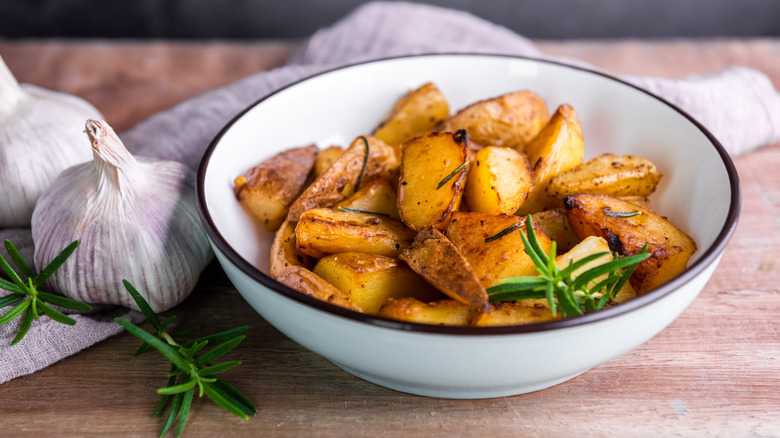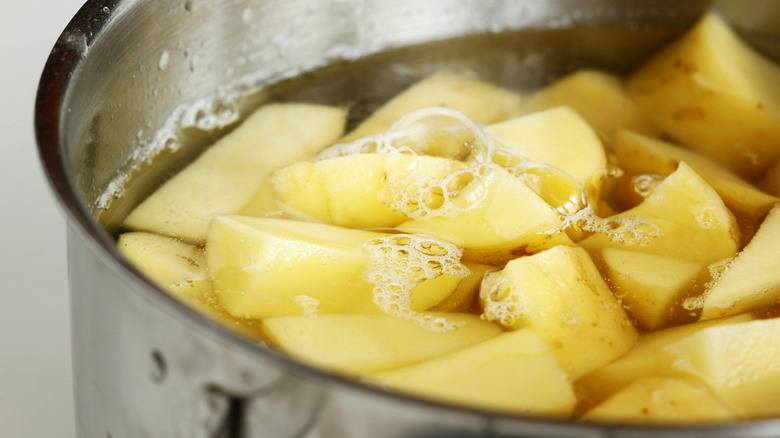Why You Ought To Boil Your Potatoes Before Roasting Them
We may receive a commission on purchases made from links.
Is there a seemingly simple dish that somehow never works out for you? For me, I inevitably screw up roasted potatoes. This is probably because I usually see them as an afterthought — something to chuck in the pan to cook alongside a chicken. They tend to wind up dry and maybe a bit burnt, and I never knew why until now. Nisha Vora, vegan recipe developer at Rainbow Plant Life and author of "Big Vegan Flavor: Techniques and 150 Recipes to Master Vegan Cooking," explained that there's a step I've been skipping. As she told The Takeout, "Parboiling is the unsung hero of perfectly roasted potatoes."
So, what does parboiling do for your potatoes? According to Vora, "It softens the insides just enough so that when they hit the hot oven, the outside gets gorgeously golden and crispy while the interior stays fluffy and tender." Her description of what happens to potatoes when you roast them from raw is spot-on, too (as I know from painful experience): "Your potatoes start to brown on the outside before the inside has fully cooked through, so you end up with potatoes that are either too firm in the center or a little dry and leathery — not the crispy-crunchy, soft-inside magic we're going for."
How to parboil and roast the perfect potato
If you're both boiling and baking your potatoes, what kind do you choose? Waxy potatoes are the best at holding their shape in soup, but perfect baked potatoes require the starchy kind. "I like using a mix of Yukon Golds (medium-starch, strong potato flavor) and russet potatoes (high-starch, mild flavor) for a variety of textures and flavors," advised Nisha Vora. If your potatoes are tiny, you can boil them whole, but if not, they should be cut into even chunks.
Put the potatoes into a pot of cold salted water. "Salt is a must — it seasons the potatoes from the inside out," Vora insisted, explaining, "Potatoes are dense, and they need a lot of salt to penetrate into their interiors." She added, "I don't usually add anything else, but if I'm feeling fancy, I might throw in a smashed garlic clove or a sprig of rosemary to infuse some subtle flavor."
Boil the potatoes until al dente and then strain them. Return the potatoes to the warm pot for a bit so the heat can dry them out a bit. Once they're dry, it's time to, in Vora's words, "Rough them up!" Shake the pot so the potatoes release a little of their natural starch. You'll then drizzle them with oil, sprinkle them with salt and pepper, and arrange them in a single layer in a pan. Roast them at high heat (450 degrees Fahrenheit), flipping them every so often until they turn golden and crispy. If you follow these directions, you'll find that all of your roasted potato problems are solved.

